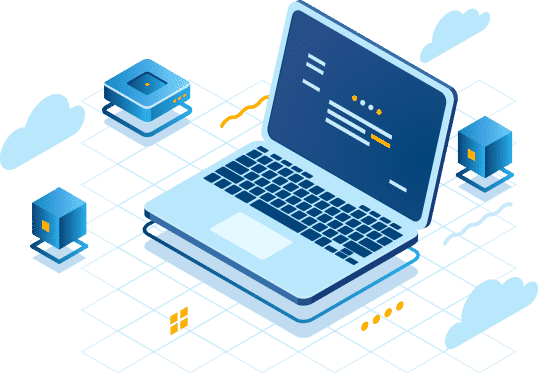Third-Party Patching That Just Works
Automate detection and remediation of critical vulnerabilities in third-party applications
Real-time detection of missing third-party patches
Privately maintained Software Repository
No VPN is required for remote, off-site patching
Bandwidth-efficient P2P patch distribution
Secure and trusted: SOC 2 Type II and ISO 27001:2022
What is Third-Party Patching?
Third-party patch management is a process of addressing vulnerabilities in outdated third-party applications, such as Google Chrome, Adobe, Java, Firefox, Zoom, and more. Ignoring third-party patching and doing only OS updates can lead to vulnerability exploitation and ransomware incidents. While many patch management solutions and RMMs support patch management for OS updates, third-party application patching is a key component that is commonly neglected by most.
Automate third-party application patch management
Third-party patch repository
Private P2P patch distribution
Deliver patches faster and avoid bandwidth issues without maintaining local appliances or cache servers.
Real-time missing patch visibility
See missing third-party patches in seconds without relying on outdated scan results from yesterday.
Automated, policy-based remediation
Choose your patching schedule and define automated patching criteria, such as severity, update type, vendor, or specific applications.
Minimize frustration, increase security
Customizable reboot behavior to give your users ample time to save their work and postpone reboots for a limited time, but enforce your patching deadlines.
Secure and trusted
Action1 is the only third-party patch management solution with both SOC 2 Type II and ISO 27001:2022 certifications.
Trusted by thousands of IT teams around the world
10M+
Managed Endpoints
99%
Patching Success
<1%
non-compliant endpoints


Why customers choose Action1
Third-party patching without VPN
Patch applications on remote and onsite endpoints with Action1 cloud-native platform. No company network or VPN connection required.
Instant value and cost reduction
Start getting value in minutes, not hours or days. Apply software patches consistently without legacy technology, clunky integrations, or multiple consoles.
Vulnerability assessment
Instantly detect known software vulnerabilities that may or may not have patches available yet.
Remote control included
Troubleshoot issues using our built-in remote control feature without the need to invest in a separate remote access tool and install yet another agent.
Offline device security posture
Improve your third-party patching success rates by automatically deploying patches as soon as endpoints that have been offline come back online.
See phenomenal ROI
What Our Customers Say
Action1 helped us save about 125 hours per month by automating patch management. That’s a huge enabler to our business; as an MSP, the more you automate, the more money you save, and the more savings you can pass on to your customers.
I gotta tell you that Action1 has changed how I install updates — I feel like now I can sleep, knowing my clients are patched.
With Action1, I’m saving hours every week and bringing in better control and consistency across everything that we do. It was also very easy to deploy; I was able to quickly install it and ensure nothing was missed.
What Experts Say

“Infrastructure and operations leaders can improve efficiency and security by taking a modern approach to patching Windows and third-party applications.”

Your organization should be reducing the time that it takes to patch software and operating systems, as monthly patch cycles don’t address how quickly attackers are moving and the remote nature of work.

“Action1 delivers security risk mitigation via policy-based patching and deployment of OS and third-party software and includes a remote desktop.”
Industry Awards






See #1 cloud-native patch management in action
Frequently asked questions
What is third-party patching?
Third-party patching refers to the process of applying code changes to software applications that are developed by external vendors, other than the primary OS provider. These patches are developed to address vulnerabilities, fix bugs, add features to the software, and resolve performance issues. Keeping your third-party applications updated is critical for maintaining your system’s security and preventing potential vulnerability exploitation by cybercriminals. Regular third-party patching helps prevent security breaches, optimizes performance, and maintains compliance with security standards. Without it, systems remain vulnerable even if OS patches are current.
Why is third-party patching important?
Third-party patching is crucial because software from external vendors often plays a key role in the overall IT infrastructure of an organization. If vulnerabilities within these applications are left unpatched, they can be exploited by cybercriminals, leading to potential data breaches or other security incidents. Keeping third-party software updated ensures that organizations are not leaving gaps in their security defenses.
What are the challenges of managing third-party patching?
Managing third-party patching presents some key challenges for every organization because of the wide variety of software applications that they use. Since each vendor follows unique update schedules and delivery methods, managing all the updates becomes impossible without centralized patch management tools.
Additionally, while testing patches for compatibility is a crucial process to prevent disruptions of your business-critical workflows, it demands significant time and resources.
Furthermore, as networks grow, IT teams face mounting difficulties in tracking and identifying all third-party applications, which often results in incomplete patch coverage. Compounding these challenges, the high volume of updates from multiple vendors creates prioritization issues and can overwhelm technical staff, especially when managing critical security patches.
How can organizations streamline third-party patching?
Streamlining third-party patching is possible through the adoption of reliable patch management software, which will automate the process of keeping your OS and third-party software up-to-date by identifying, testing, and installing patches across every single device in your network. Using such software will also automate creating regular audits and monitoring your systems for discovering vulnerabilities in real-time, ensuring they are being addressed promptly.
Implementing clear policies and procedures for patch management, you can rest assured that all systems in your network receive regular updates, minimizing the risk of missing a critical update and improving the overall security posture of your organization.
What are the risks of not performing third-party patching?
Neglecting third-party patching exposes organizations to severe security vulnerabilities that cybercriminals actively exploit. Unpatched applications become prime targets for data breaches, ransomware attacks, and malware infections, often leading to system downtime and business disruption.
Beyond immediate security threats, organizations face regulatory compliance violations that can result in substantial financial penalties, particularly in industries governed by strict data protection standards. Missing critical security updates also compromises the entire network infrastructure, as hackers frequently use outdated third-party software as an entry point to launch broader attacks across the system.






